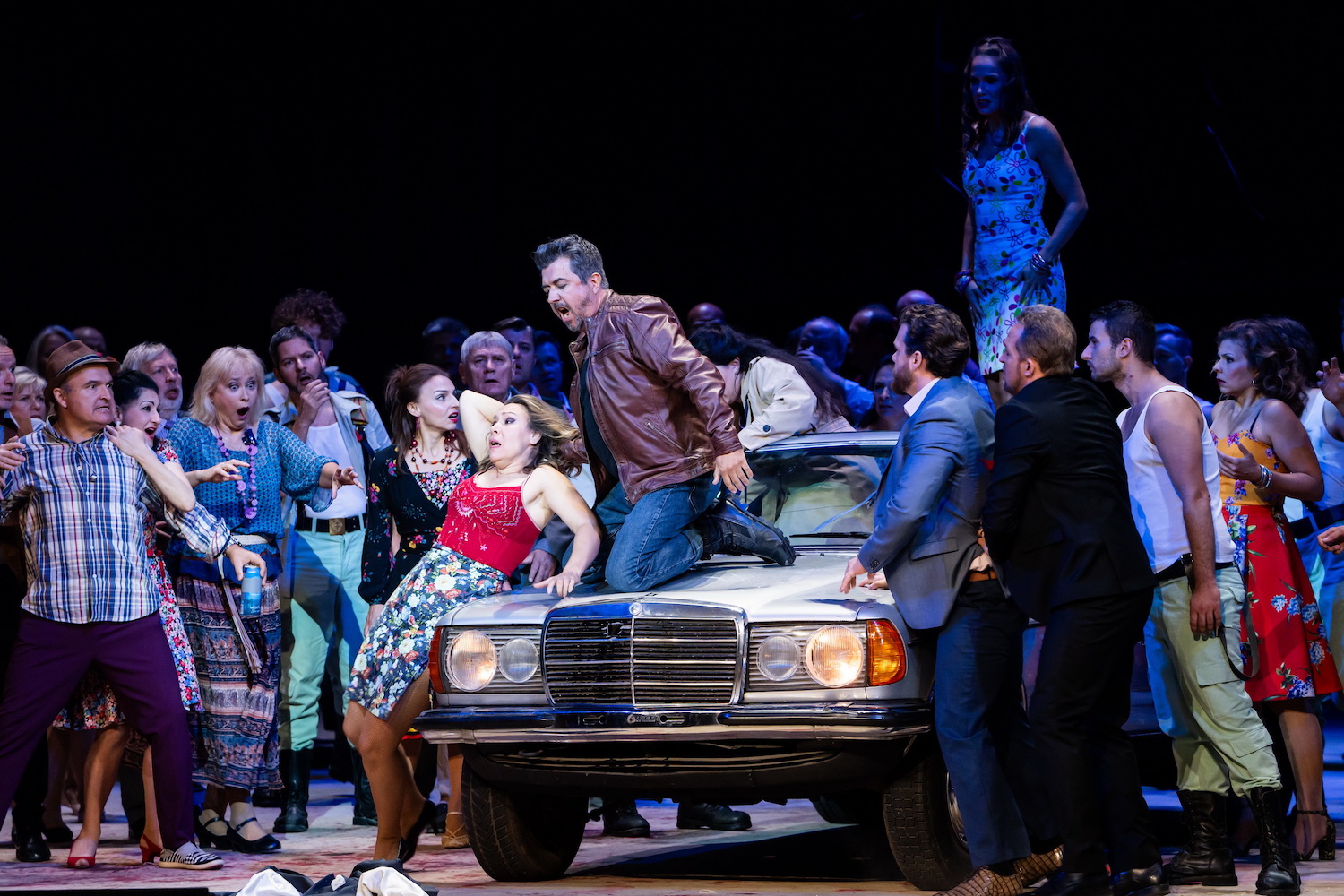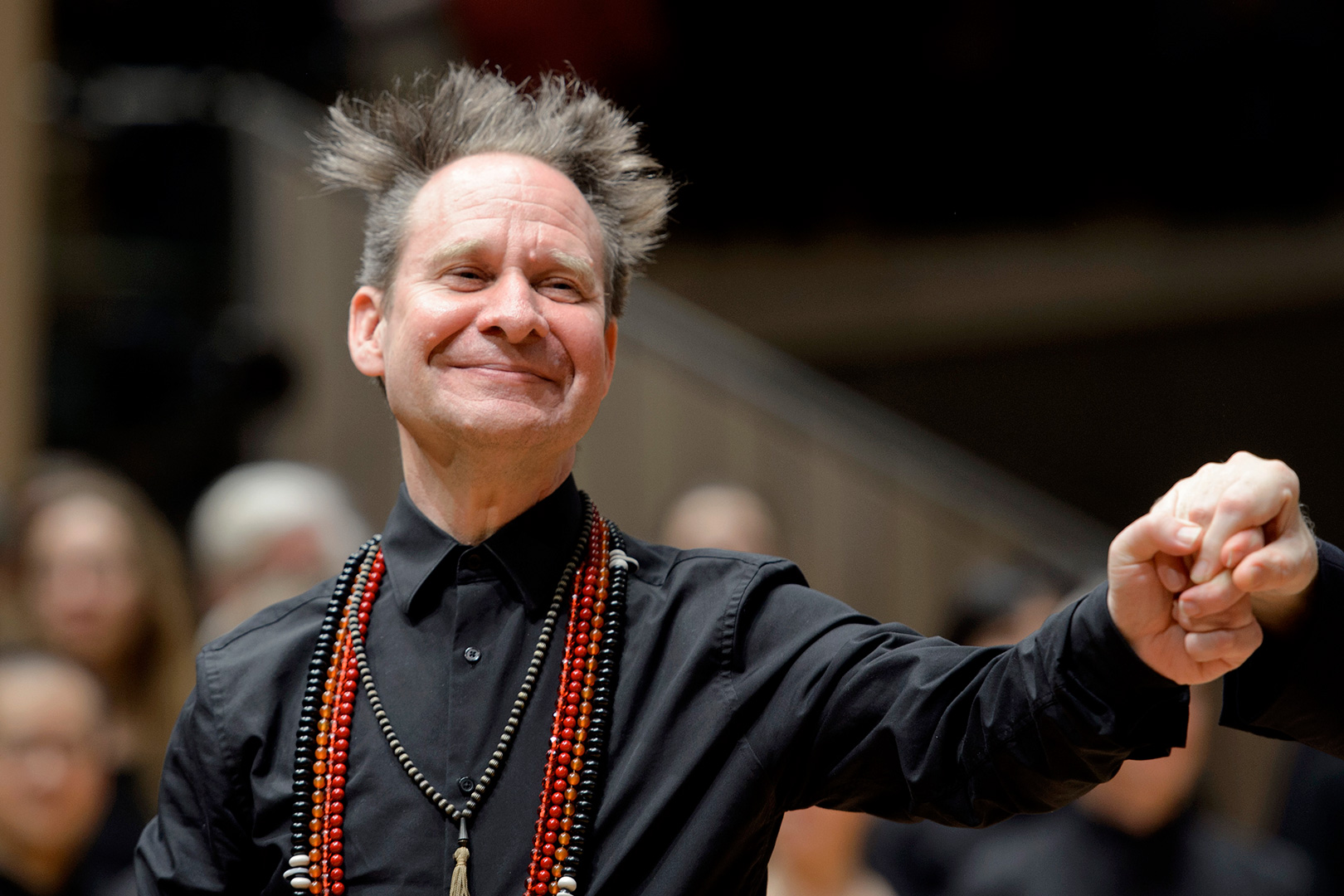Albert Herring, music: Benjamin Britten, libretto:Eric Crozier, seen at The Grange Festival , June 25 2017
Why did Benjamin Britten not write more comedy operas? On the evidence of this Grange Festival production he was clearly seriously good at being funny and clever at the same time. Was Britten afraid of not being taken seriously?
Benjamin Britten is in my book the (world’s) most versatile opera composer from the post-war era. Peter Grimes is a tragic masterpiece. The Turn of the Screw is that rare thing: a ghost story that improves when set to music. A Midsummer Night’s Dream is a respectful adaptation of Shakespeare with some highly individual music. Death in Venice manages to add an extra dimension to Thomas Mann’s obsessive and creepy tale about a professor pursuing an underage boy. Comedy and opera all too often strange and even uncomfortable bedfellows (comedy is better suited to operettas and musicals). But Britten was a composer who could turn his hand to seemingly anything.
This new production of Albert Herring at the Grange Festival in Hampshire makes it clear that comedy suited him very well. Yes, this production is new, but a couple of people on the team are the world’s most experienced Britten experts. They could have done this in their sleep. Luckily they are wide awake and still very much on the ball. The 83-year old director John Copley directs worked with Britten\s company as a young man (and was kicked out after a few years). He has directed Albert Herring many times in different countries. The 87-year old conductor Steuart Bedford’s mother was part of the original cast of both The Rape of Lucretia and Albert Herring. Bedford has during his long career conducted all of Britten’s operas and recorded Herring for the Naxos label. With these veterans on board this Grange Festival production was practically unsinkable.
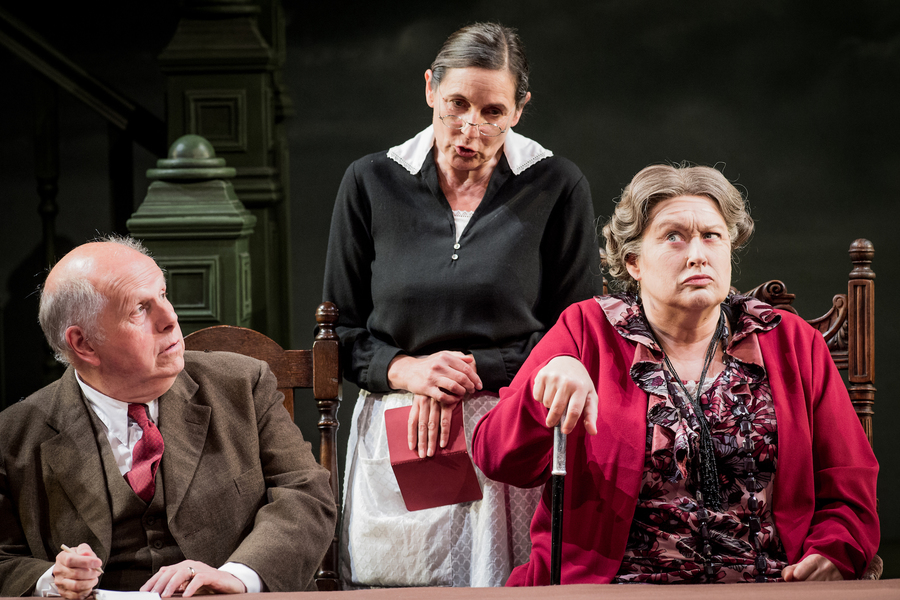
Eric Crozier directed Benjamin Britten’s first opera Peter Grimes in 1945 and then took on the same duties for the next opera, The Rape of Lucretia. To his surprise Crozier was then asked by Britten to come up with some ideas for a comedy. Crozier suggested Guy de Maupassant’s novella Le Rosier de Madame Husson. Britten liked the idea that it could easily be transposed from its original Normandy setting to East Suffolk, where the composer grew up. Britten then gave the somewhat astonished Crozier the job of librettist. It is clear that Crozier and Britten worked together very closely. Crozier helped Britten to reveal the characters through the music.
Peter Grimes is set in a fictive fishing village in Suffolk. The location is reminiscent of Aldeburgh, the town where Britten lived and established his own festival. In Albert Herring the action takes place in a village called Loxford. The similarities with Yorford in East Suffolk, not far from where Britten grew up, are not incidental.
The overbearing and snobbish Lady Billows has invited local dignitaries to her manor to deliberate the candidate for the the title of May Queen. The Superintendent, the head teacher at the church school, the vicar and the Mayor mention a number of virtuous and chaste young girls that seem perfectly suitable. But Lady Billow, who is the main sponsor, follows her stern housekeeper’s advice and turns them all down. Therefore the decision is made to pick a May King. The shy, innocent and fairly simple greengrocer’s son Albert Herring is deemed to be a perfect candidate. Albert demurs but his totally domineering mother is not going to give up on the prize money. Albert is under her thumb and gives in. At the May Fest things start to go off the rails. Albert’s lemonade is spiked with rum by the mischievous butcher’s boy who hopes that it will loosen up the teetotal greengrocer’s assistant. The potion begins to work and the orchestra responds with variations on Wagner’s magical Tristan chord. This is typical of Britten’s, at times, brilliant pastiches in this score. In the first act he dips into parlour music, there are children’s ditties, beguiling easy-on-the-ear love music, there is cheeky whistling and Alban Berg also makes an appearance. There are even shades of Verdi’s Falstaff in the last act.
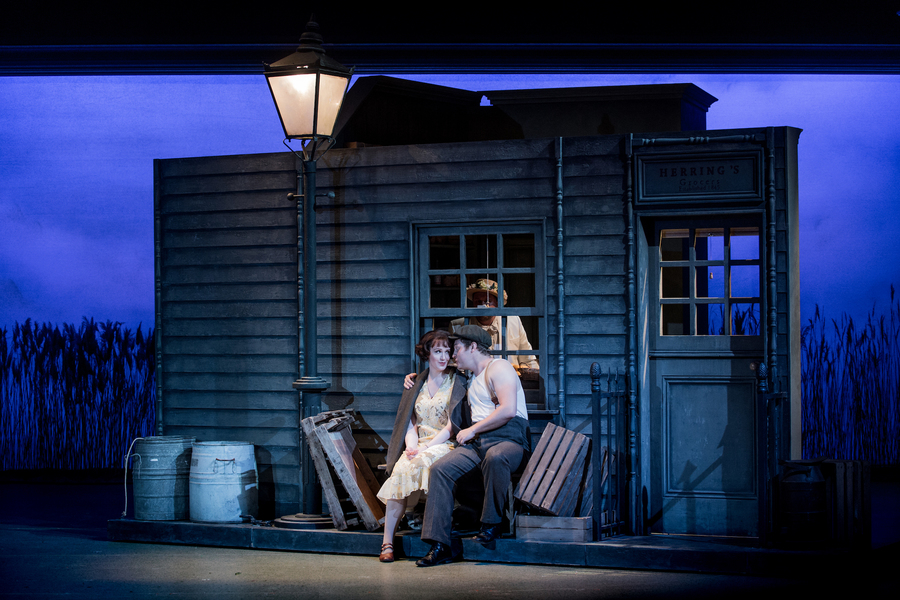
Albert has become quite tipsy from the rum punch, but when he overhears the butcher’s boy Sid and the baker’s daughter Nancy canoodling he decides that it is time for him to break free. The next day Albert doesn’t turn up for work and everybody is worried. When the wreath with which Albert was crowned is found, crushed by a cart, everybody fears the worst. Albert is assumed dead and the May King organisers join Albert’s mother to sing a heartfelt threnody. Suddenly the lamented son just wanders in, his virgin-white suit all soiled, but clearly happy. He has had a drunken good night. lost his virginity and thanks the commission for is financial contribution to it all. This shocking confession leads to his title being retracted. Albert doesn’t care, his newly found freedom has changed his outlook totally. Nancy is a bit smitten by the liberated Albert. In an act of biblical symbolism Albert ends up giving away the apples and peaches from the shop to the children who happily take a bite. It is a happy ending (as opposed to the de Maupassant original).
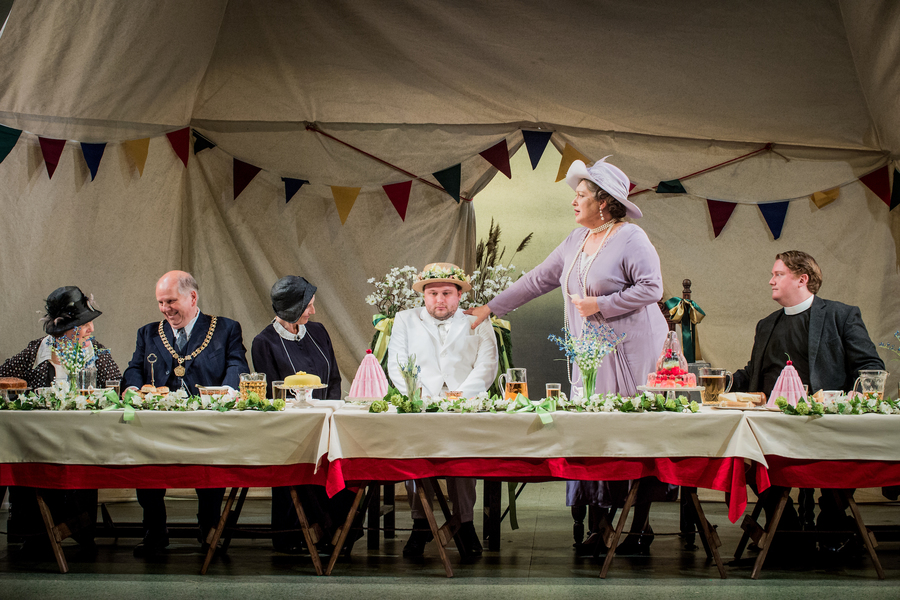
Photo: Robert Workman
The 13 singers and 13 musicians (with some of them doubling up on instruments) show off a real sense of ensemble spirit. You can feel that the cast enjoy performing this opera. The lament for Albert in act three is a beautiful piece of writing and sung with verve.. Because Albert Herring is a comedy we can laugh about it but if this threnody were to feature in a tragic opera it would fill you with sadness.
Richard Pinkstone (Albert Herring) in the lead is a believable mother’s boy with a suitably pleasant voice. Herring overhears Sid and Nancy taking the mickey out of him and Pinkstone could emphasize his sexual awakening and frustration a bit more, but otherwise this is a remarkably confident display from a relatively inexperienced singer. I also liked soprano Anna Gillingham’s insecure school mistress Miss Wordsworth and she is a talent to keep an eye on. The Irish soprano Orla Boylan (Lady Billows) is asked to act much older than her age and does she pull it off! Hers is the standout performance of this show and she manages to make a wonderful meal out of the old bag’s mixed up speech at the May fest.
It is good to see that young singers here get a chance to sing meaty roles. The International Singing Competition that the Grange festival organises in September provides a wonderful opportunity for talent to filter through and next year we will hopefully hear some of the winners.
Steuart Bedford probably knows this score backwards and the very versatile Aurora Orchestra is the right fit for this chamber work that incorporates so many different musical styles. There are some tricky passages and quite a few sound effects (whistling, various clocks and bells). Then there is the strangely contemplative interlude (or ballet) between act two and three, but it all adds up to a very original opera score.
Remaining performances June 29, July 1,7,9
The Grange, Hampshire, Alresford. SO24 9TG

